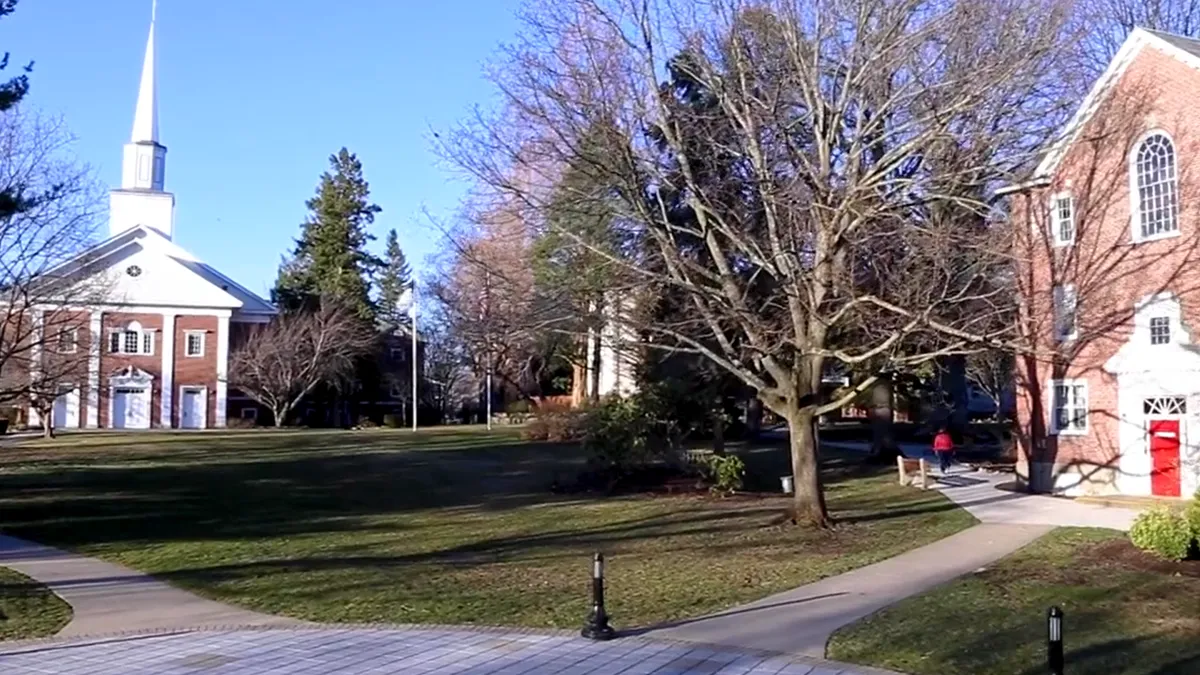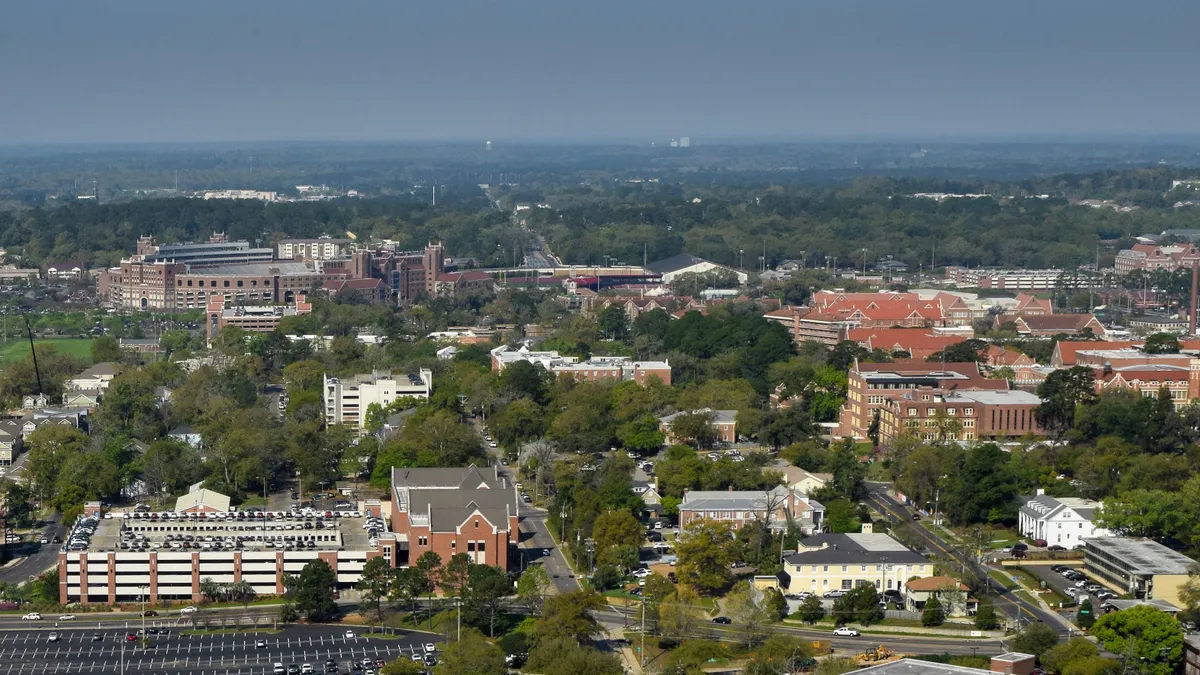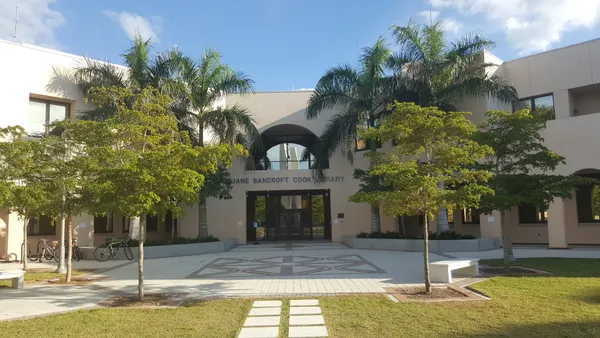Dive Brief:
- Faced with intensifying financial challenges, Eastern Nazarene College in Massachusetts is moving to close permanently after a vote by its board, according to a Tuesday announcement.
- The private Christian nonprofit has forged teach-out agreements with three other faith-based institutions, it said.
- Beyond closure, Eastern Nazarene's board aims to transition the college into “a new educational enterprise” to carry on its legacy of religious education through scholarships to other institutions, though it did not provide specific details.
Dive Insight:
In its closure announcement, Eastern Nazarene referenced “significant financial headwinds” in recent years.
“During that time, the Board and multiple presidents have pursued numerous alternatives to closure,” the college said. “While these efforts produced fruit that enabled ENC to continue operating until now, the underlying challenges have intensified.”
For fiscal 2023, the college racked up an operating deficit of $4.9 million, on top of a $1.3 million deficit the year before. From 2022 to 2023, its total operating revenues fell about 18.7% to $15.5 million.
As with other struggling institutions, financial woes followed enrollment drops. Between 2017 to 2022, Eastern Nazarene’s fall enrollment dropped by more than a third to 535 students. Since 2010, the headcount fell by nearly half, according to federal data.
Eastern Nazarene framed its financial troubles in the context of sectorwide struggles for smaller private colleges, which are facing increased competition and demographic pressures on enrollment.
Given its mounting challenges, the college said that “transitioning to a new educational enterprise is the only viable path for continuing ENC’s mission of providing transformational education.”
As the college begins the process of closing, President Colleen Derr acknowledged that stakeholders likely had questions about the next steps for Eastern Nazarene’s programs and assets.
“While the outcome of this process is known, the process to get there remains fluid,” Derr said, adding that the college is committed to transparent communication.
Eastern Nazarene’s goal is to finish teaching undergraduate and graduate students set to graduate at the end of the 2024-25 academic year, but it didn’t specify the exact timing. That would be contingent on reaching a “critical mass” of faculty and students committed to staying, the college added.
The college’s board chair, David Bowser, said in a statement Tuesday that Eastern Nazarene’s top priority in the coming weeks is “caring for those most directly affected by this decision: our students, faculty and staff.”
Bowser added that closing the college now will help further its larger mission “to provide a transformational education through annual scholarships that empower students living in our region to attend other Nazarene schools.”
Eastern Nazarene first opened in 1900 in Rhode Island, becoming one of the first three institutions officially supported by the Church of the Nazarene. About two decades later, the college relocated to Massachusetts because, as the college puts it today, its founders “believed the educational standards and requirements were the most rigorous in the nation.”
Prior to its closure announcement, Eastern Nazarene touted its athletics program, affordability, small class sizes and diversity, with students of color making up 43% of its enrollment.
Several other faith-based colleges are struggling. Among recent examples, Concordia University Ann Arbor, a Lutheran institution, plans to wind down most of its on-campus and online programs. And Alverno College, a Catholic institution, is cutting more than a dozen majors and laying off faculty and staff after declaring financial exigency.
And in Eastern Nazarene’s home state of Massachusetts, state regulators earlier this year ramped up oversight of two faith-based colleges over financial concerns.














